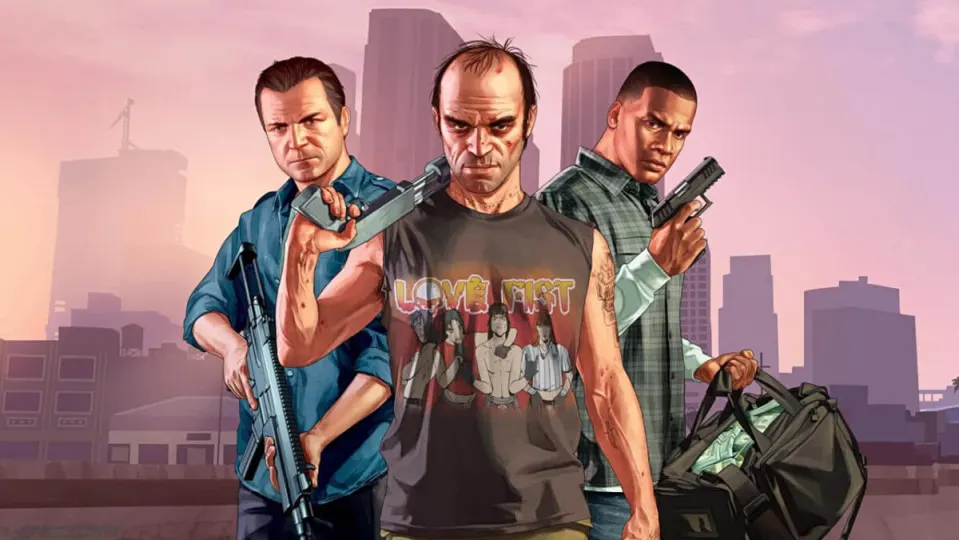We all love to play the role of a bad guy in video games. Whether it’s the power or depth of backstory that keeps us coming back to true villains, there’s no denying that bad guys are more compelling to play.
In the article below, we’ll explore the reasons that many gamers, if not most, reach for the villain when selecting a game and why we love to be bad in them.
A closer look at villains
Before we dig into the meat of this article, we need to clarify what we mean by ‘bad guy.’ According to the law, the difference between criminals and the innocent is that criminals commit crimes. These criminals are most often the inspiration for the ‘bad guy’ character in many video games. So, while there’s a clear disparity between the actions and moral compass of Michael in Grand Theft Auto V as opposed to Trevor, both characters are technically the ‘bad guy’ because both are clear-cut criminals.
Even in the case of Kratos, the benevolent protagonist of God of War, we’re looking at a pretty bad guy. Even though Kratos is played off as the protagonist and a generally positive force of nature, his crimes would be unforgivable. Let’s not forget that he’s ended more family members than would fit on two hands.
In truth, there are very few action games that let you play as a clean-cut good guy. I can feel that you’re expecting me to end this section by saying that Nathan Drake from Uncharted is the good guy of which I speak. Let’s face it, he’s got a heart of gold and often just puts his faith in people unworthy of it. Unfortunately, in terms of the law, he’s as bad as it gets. Here are a few things that make Nathan Drake a criminal, and thus, a bad guy:
- He’s killed more innocent people than can be counted without an abacus
- Doesn’t take treasure for any other reason than personal gain
- Steals from people, even as an adolescent, more times than you can count on your fingers and toes
- Doesn’t care about preserving the sites he pillages
- Not noble, chivalrous, or likable in many respects; he’s cocky
- Lies like it’s his day job, hobby, and life’s work
- On the run from the police for crimes he’s perpetrated
- Often shows no remorse for his actions
I’m sorry to smash that pedestal that many gamers, me included, have placed the roguishly handsome Drake upon, but he’s a criminal. The worst sort.
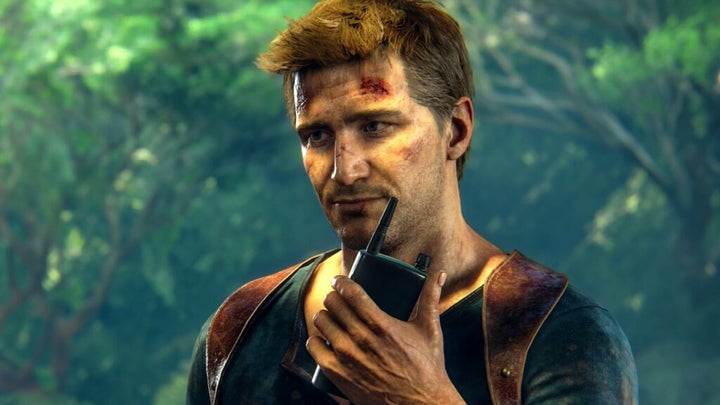
But then, what is an example of a true good guy in gaming? Well, you’re not likely to find one in action games. Most action games require the protagonist to get a little hands-on with antagonists or aim firearms at them. And, unfortunately, when your story arc involves committing crimes that would get you locked up or given the death penalty, you’re not a clean-cut good guy.
Your best bet of finding the elusive ‘good guy’ trope in gaming would be an open-ended game where you make every decision. Something like The Sims 4 springs to mind. There you have a game where you can take a character like the philandering Don Lothario and cause him to change his ways. You know, stop sleeping around, get him settled and turn him into the best dad, husband, and friend under the sun. You could also go full ‘bad guy’ with him, with the help of mods, of course. The point is unless you’re able to get the protagonist to complete the game without committing crimes, you’re dealing with a bad guy.
Why do we like playing the bad guy in games?
Good guys are boring
For one thing, playing a good guy would be really boring in an action game. Take Geralt of Rivia, for example, the protagonist from The Witcher franchise. Who, in their right mind, would want to play a game where Geralt doesn’t kill anyone? Would it really be as fun if the character simply walked around negotiating with the various antagonists instead of slaying them? No. It would certainly not.
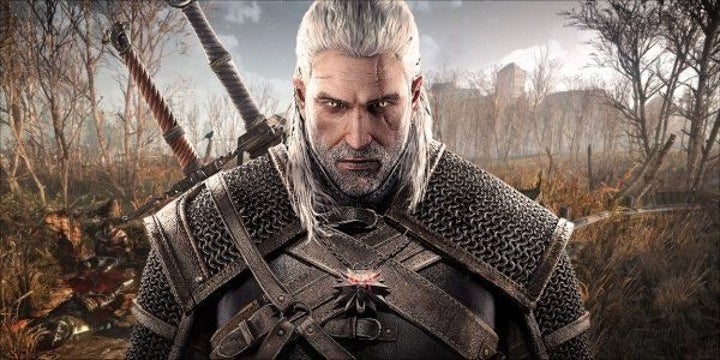
The same could be said for GTA V. Imagine a world where Trevor doesn’t brutally bludgeon anyone to death. Instead, he gets into a disagreement with someone because they irk him, and then he takes a step back, draws a deep breath before the situation escalates in his clearly sociopathic brain, and then walks away with a few low grunts. BORING. That assertion brings us to the reasons why we like being the bad guy in video games.
There are no consequences in games
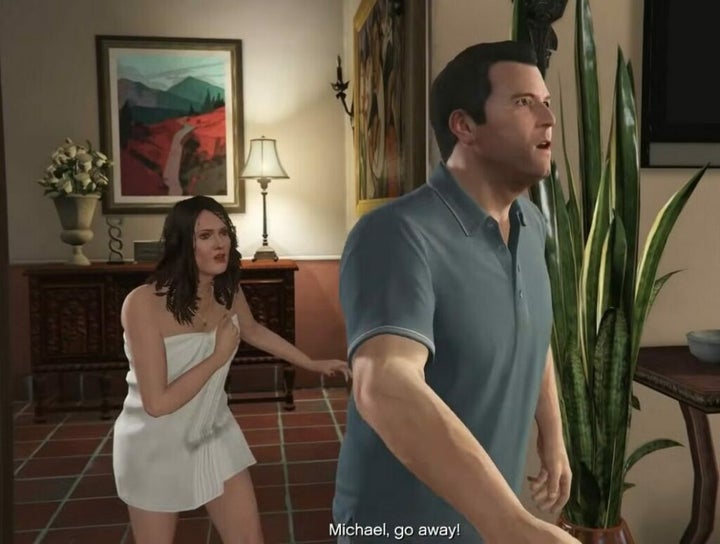
In Grand Theft Auto V, during the Marriage Counselling mission, we help Micheal take down Martin Madrazo’s house after finding the fiend in bed with Amanda. This sounds like a heck of a task, but luckily, Martin Madrazo has done Michael a favor and built his house on sand. And, as Michael so eloquently points out to young Franklin, ‘It’s a foolish man who builds his house in sand, baby.’
In reality, there are consequences for literally ripping a man’s house from the hill atop which it sits. But, within the confines of the game, no such consequences exist. If we break the fourth wall, there are still no consequences to be found. You orchestrate and execute a plan to pull a mansion down as retribution for infidelity in a crumbling marriage, and when you step away from your PC – your instrument of revenge, if you will – there are no police officers waiting outside your house, your name will not appear on the six o’clock news, and all will be well.
Because games are not connected to reality, and we don’t yet live in a dystopian Ready Player One future where your in-game actions have real-world consequences, you cannot be held responsible for anything you do in a game. This makes video gaming a brilliant way to work through any demons or waves of anger you have toward the real world. I have drowned, incinerated, electrocuted, and otherwise killed too many Sims to count in my time. And not because the game said I needed to; simply because I felt like it and knew that it did not matter in the real world. If those had all been crimes, I’d be behind bars for a very long time.
We get to live vicariously
Living vicariously through someone else’s experiences is something that humanity enjoys greatly. The first example of this was in the stories early human species like Homo Neanderthalensis and the Denisovans likely told of their hunts.
I’m not going so far as to assume that these species had languages that we’d understand, but even early humans are believed to have communicated stories of their experiences either through primitive language or cave art. From there, we moved on to stories around the fire, then to books filled with action, love, adventure, and horror, and then to video, and later, video gaming.
All of these are methods that we humans use to tell stories so that others may live vicariously through us. This is easiest in video gaming because you, as the player, are the one that actually pulls the trigger, as it were.
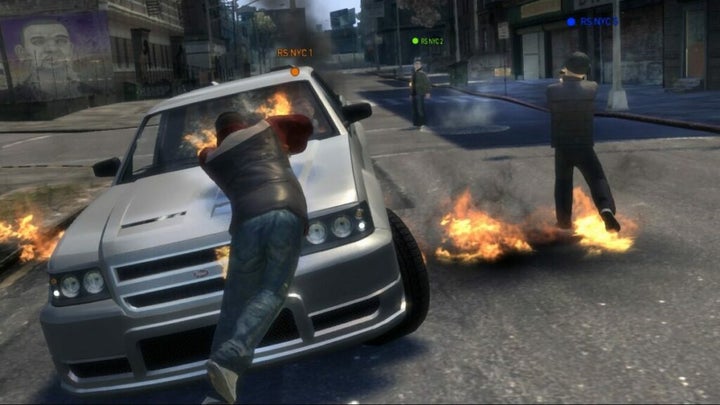
We’ve already covered that the bad guy trope allows for more exciting storytelling, and this means that we get to become pirates, assassins, serial killers, or anti-heroic superheroes, even if only for the duration of a game. When the game is done, we move on to something else. However, we retain the feeling that we had pulling triggers, slashing throats, and running people over with an armored Enus Cognoscenti.
Even though we haven’t done those things in real life, we have a slight idea of what it may be like to do so. Hence, we get to live vicariously through someone else’s experiences.
We get to do bad things in games
This ties in with the previous points and is likely one of the most important factors; we like getting to do bad things from time to time. Humans live by laws, codes, constitutions, and a pesky little thing called morality. All of these factors mean that we have to be generally good people if we want to stay out of the criminal justice system.
This means that we cannot shoot people, run people over, steal from people, or otherwise behave badly as we can in video games. Video games give us the chance to let loose and do life differently for a time. But, when we put down those controllers and step away from our computers, the morality codes, laws, constitutions, and everything else keeping us in line comes back into effect.
It’s good to be bad
Life is difficult, filled with stress and anxiety, and every action we take has an equal but opposite reaction, otherwise known as a consequence. We’ve covered by now that we cannot act in real life as we do in Grand Theft Auto, The Witcher, or Uncharted, but that’s why these games exist; to give us an outlet for everything that we have to deal with in our daily lives.
There’s no reason to be good in video games, unless being good has benefits, like in The Sims. So why not let loose completely and go absolutely insane? There are no consequences to embracing your dark side within the confines of a video game, and it may even help you be a more stable person in reality. As long as you keep your violence, aggression, and otherwise deplorable and illegal activities to within the games you play, you’ll be perfectly fine.
